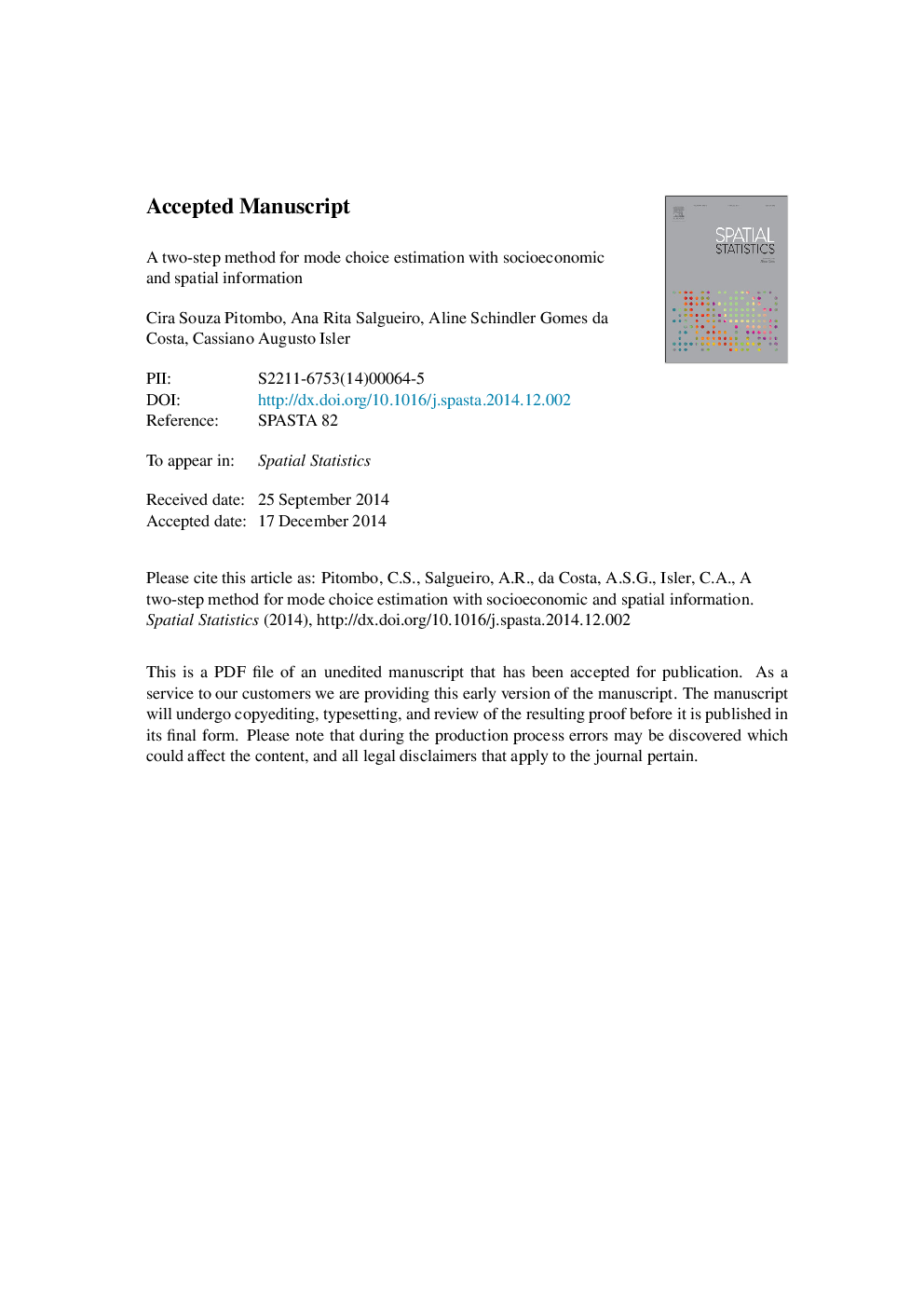| Article ID | Journal | Published Year | Pages | File Type |
|---|---|---|---|---|
| 7496596 | Spatial Statistics | 2015 | 55 Pages |
Abstract
Individuals choose the travel mode considering their own characteristics, those of the journey and the transport systems. Despite the current wide availability of georeferenced information and the forthcoming of Spatial Travel Demand Analysis as a research field, only a few studies have integrated the mode choice modeling methods and the geographical information. In this context, the goal of this paper is to apply a two-step method to estimate the mode choice based on the geographical position and socioeconomic attributes. From a database of household surveys in the city of São Carlos (Brazil) the first step of the method is to select the attributes which most influence the mode choice with a Decision Tree (DT). After comparing the performance of the DT with a Multinomial Logit Model, an Ordinary Kriging is applied to predict the mode choice under the spatial locations. The DT has shown to be effective in estimating the mode choice and selecting the variables to be kriged, which allowed predicting the mode choice of travelers based on geographical location. The proposed method may be an alternative to the traditional approaches in both non-spatial and spatial modeling, by enabling mode choice estimations given geographic coordinates of households.
Related Topics
Physical Sciences and Engineering
Earth and Planetary Sciences
Earth and Planetary Sciences (General)
Authors
Cira Souza Pitombo, Ana Rita Salgueiro, Aline Schindler Gomes da Costa, Cassiano Augusto Isler,
